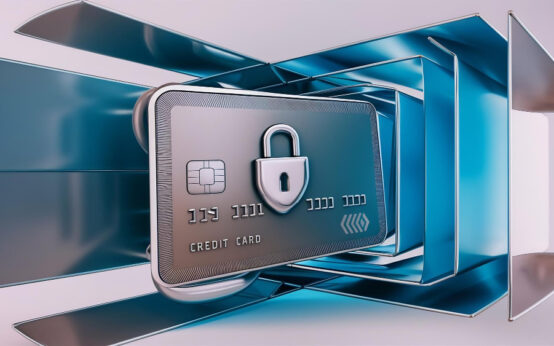Are you overwhelmed with credit card debt? Discover various Credit Card Consolidation Options available that could help you regain control over your finances. In this article, we’ll explore effective consolidation methods and provide tips to ensure a smooth process. By the end, you’ll have a clear understanding of the best strategies to consolidate your credit card debt.
Understanding Credit Card Consolidation
Credit card consolidation is the process of combining multiple credit card balances into a single payment. This can simplify your finances and make it easier to manage your debt. One common method is using a consolidation loan, which allows you to pay off all your credit card debts at once and then make one monthly payment on the loan.
Another option is through balance transfer credit cards. These cards offer a low or 0% interest rate for a limited time, allowing you to transfer balances from higher-interest cards.
Debt management plans
are also available, typically offered by credit counseling agencies. These plans involve negotiating with creditors to reduce interest rates and create a manageable repayment plan.
Each method has its own benefits and drawbacks. It’s important to consider factors such as interest rates, fees, and your ability to make consistent payments. Consolidation can help reduce financial stress and improve your credit score if done correctly.
Pros and Cons of Different Consolidation Methods

When considering credit card consolidation, it’s crucial to evaluate the different methods available. Each method has its pros and cons, and understanding them can help you make an informed decision.
Balance Transfer
Transferring your credit card debt to a card with a lower interest rate can save you money on interest. Pros of this method include lower interest rates, which can help in paying off debt faster. However, cons include balance transfer fees and the possibility of high interest rates if you don’t pay off the transferred balance within the promotional period.
Debt Consolidation Loan
This method involves taking out a personal loan to pay off multiple credit card debts. The pros include a single monthly payment and potentially lower interest rates compared to credit cards. On the other hand, the cons are origination fees and the requirement of good credit to qualify for the best rates.
Home Equity Loan
A home equity loan allows you to borrow against the equity in your home. The pros include lower interest rates and potential tax deductions. However, the cons are the risk of losing your home if you fail to make payments and possible closing costs.
Credit Counseling
Working with a credit counseling agency can help you set up a debt management plan. Pros are professional advice and potentially lower interest rates negotiated by the counselor. The cons include monthly fees and the impact on your credit score due to closing credit accounts.
Each method has distinct advantages and disadvantages that should be carefully considered based on your unique financial situation.
How to Choose the Right Option for You
Choosing the right credit card consolidation option can be crucial for managing your debt effectively. There are several methods available, each with its own advantages and potential drawbacks. Here’s a comprehensive guide to help you decide which option suits your financial situation:
Assess Your Financial Situation
Start by reviewing your current financial status. Calculate your total credit card debt, interest rates on each card, and your monthly income and expenses. This will give you a clear picture of your financial health and help determine which consolidation method to pursue.
Compare Interest Rates and Fees
Interest rates and fees vary significantly between consolidation options. Balance transfer credit cards often offer 0% intro APR but may charge transfer fees. Debt consolidation loans might have lower interest rates but could include origination fees. Always compare the total cost of each option before making a decision.
Consider Your Credit Score
Your credit score will impact the availability and terms of consolidation options. High credit scores may qualify for better interest rates and more favorable terms. Check your credit score and understand how it affects your choices.
Evaluate Repayment Terms
Each consolidation option comes with different repayment terms. Balance transfer cards might offer shorter 0% APR periods, whereas debt consolidation loans typically have fixed repayment schedules. Choose an option with terms that match your ability to pay off the debt comfortably.
Check Lender Reputation
Always consider the reputation of lenders or financial institutions offering consolidation services. Read reviews, check their ratings, and ensure they have a history of fair practices. Avoid any lender with numerous complaints or negative feedback.
By carefully evaluating these factors, you can select a credit card consolidation option that best fits your financial needs and helps you achieve a debt-free future more efficiently.
Tips for a Successful Consolidation Process

When undergoing credit card consolidation, it’s crucial to have a plan in place to ensure success. One of the first steps is to evaluate your debt to understand the total amount owed and to whom. Create a detailed list of all your credit card balances, interest rates, and minimum payments. This will help you map out your consolidation strategy effectively.
Shop around for the best consolidation options. Not all consolidation programs are created equal. Compare interest rates, fees, and terms from different lenders to find the most favorable deal. Use online tools and resources to assist in this comparison.
Consider the impact on your credit score
before applying for consolidation. Some methods might have a temporary negative effect on your credit, while others could potentially improve it over time.
Stick to a budgetonce you have consolidated your debt. It’s important to avoid accumulating new debt during this period. Allocate a portion of your income to pay off the consolidation loan and cut unnecessary expenses. Utilizing budgeting tools or apps can help manage finances more effectively.
Communication with your lender is key. If you encounter any issues or changes in your financial situation, contact your lender immediately to discuss possible solutions. This can prevent missed payments and additional fees.
Lastly, seek professional adviceif you are unsure about any part of the consolidation process. Financial advisors can provide personalized guidance tailored to your specific situation, helping you navigate through the consolidation process with confidence.
Common Mistakes to Avoid During Consolidation
When consolidating credit card debt, avoid extending your repayment period for too long. While it might lower your monthly payments, you could end up paying more in interest over time. Be mindful of the terms and conditions of any new loan or credit line.
Another common mistake is not comparing multiple offers. Different lenders offer varying interest rates and fees.
Shop around
to find the best deal that fits your financial situation.
Many people overlook the impact of closing old credit card accounts. Closing accounts can affect your credit score by reducing your overall credit limit and increasing your credit utilization ratio. Keep your old accounts open unless absolutely necessary.
Inaccurately estimating your budget can also be problematic. Make sure to assess your monthly income and expenses accurately to ensure you can afford the new consolidation plan.
Budgeting effectively
is crucial for a smooth repayment process.
Lastly, avoid the trap of continuing to use your credit cards after consolidation. Doing so can lead to additional debt and defeat the purpose of consolidation. Commit to not accumulating more debt during and after the consolidation process.



 Best credit cards secured: your path to a stronger credit history <p style='text-transform:none; line-height:20px !important; font-size:16px; font-weight:normal; color:#424242; margin: 0px; margin-top:10px;'>They offer a smart way to show lenders you’re serious about managing your finances.</p>
Best credit cards secured: your path to a stronger credit history <p style='text-transform:none; line-height:20px !important; font-size:16px; font-weight:normal; color:#424242; margin: 0px; margin-top:10px;'>They offer a smart way to show lenders you’re serious about managing your finances.</p>  The best credit cards for lounge access: your key to premium airport comfort <p style='text-transform:none; line-height:20px !important; font-size:16px; font-weight:normal; color:#424242; margin: 0px; margin-top:10px;'>With these cards, you have exclusive access to lounges, offering comfort while you wait for your flight.</p>
The best credit cards for lounge access: your key to premium airport comfort <p style='text-transform:none; line-height:20px !important; font-size:16px; font-weight:normal; color:#424242; margin: 0px; margin-top:10px;'>With these cards, you have exclusive access to lounges, offering comfort while you wait for your flight.</p>  Safe, simple, and fun: discover the best debit cards for kids <p style='text-transform:none; line-height:20px !important; font-size:16px; font-weight:normal; color:#424242; margin: 0px; margin-top:10px;'>These cards offer the flexibility and convenience that both parents and kids need.</p>
Safe, simple, and fun: discover the best debit cards for kids <p style='text-transform:none; line-height:20px !important; font-size:16px; font-weight:normal; color:#424242; margin: 0px; margin-top:10px;'>These cards offer the flexibility and convenience that both parents and kids need.</p>